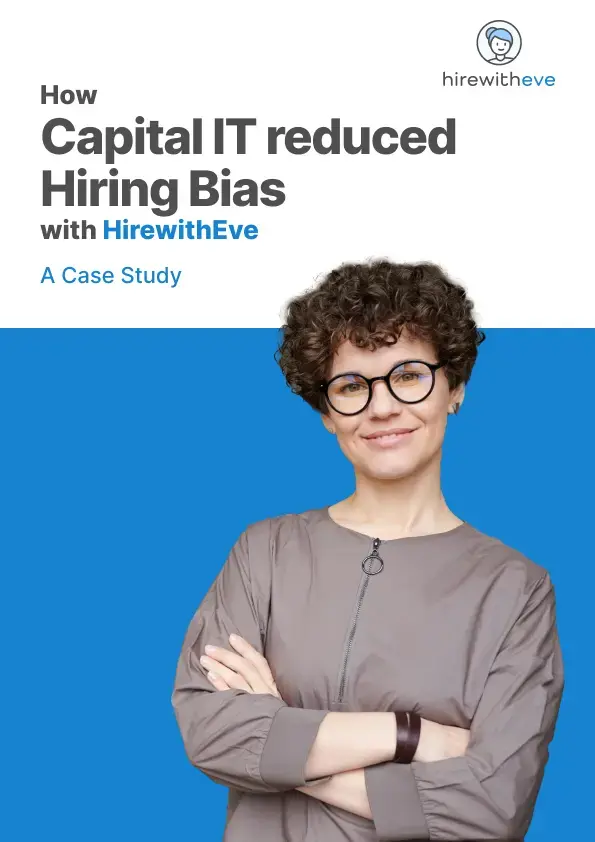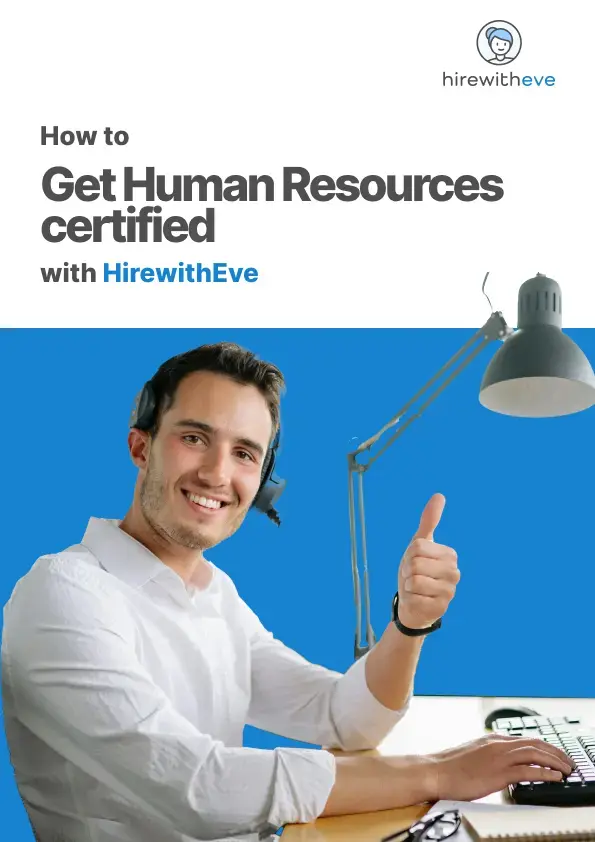What is a Peer Interview: A Practical Guide for HR
What is a Peer Interview: A Practical Guide for HR

In today's evolving hiring landscape, companies are continually searching for ways to improve their recruitment processes. One such method that has gained traction in recent years is the Peer Interview for HR. While traditional interviews typically involve HR personnel and hiring managers, a peer interview brings a fresh perspective by involving potential colleagues in the hiring process. But what exactly is a peer interview, and why should HR managers consider incorporating it into their recruitment strategies? In this practical guide, we’ll break down the key elements of a Peer Interview for HR, how it benefits organizations, and how to implement this method effectively.
Table of contents
What is a Peer Interview?
A Peer Interview for HR is a type of interview in which one or more employees, typically those who would work directly with the candidate, participate in the interview process. These peer interviewers evaluate the candidate based on job-specific knowledge, teamwork skills, and cultural fit. This method allows future team members to have a say in who joins their team, ensuring that the candidate not only meets the qualifications of the role but also meshes well with the company culture.
Involving peers in the interview process can lead to a more well-rounded assessment of the candidate, as peers often understand the day-to-day challenges of the job better than HR or hiring managers. As a result, a Peer Interview for HR becomes a crucial step for ensuring that new hires integrate smoothly into their teams and contribute effectively.
Benefits of a Peer Interview for HR
Implementing a Peer Interview for HR brings numerous advantages that benefit not only the hiring process but the organization as a whole.
1. Increased Cultural Fit
Peers can provide unique insights into how well a candidate aligns with the company's culture. During a Peer Interview for HR, potential colleagues are in an ideal position to assess whether a candidate would fit in with the team dynamics. This ensures that new hires don’t just bring technical skills to the table but also work well with the existing team.
2. Better Assessment of Practical Skills
Peers can ask more job-specific questions, diving deeper into the candidate’s hands-on experience. A Peer Interview for HR allows for technical evaluation based on real-life challenges that employees face in their roles. This practical approach ensures that the candidate is genuinely prepared for the tasks ahead.
3. Shared Ownership of Hiring
Including team members in the interview process fosters a sense of ownership and responsibility. When employees are involved in a Peer Interview for HR, they feel more invested in the success of the new hire. This creates a more collaborative work environment and ensures that the chosen candidate has been carefully vetted by the team.
4. Improved Employee Retention
A Peer Interview for HR leads to better hiring decisions, which in turn can improve employee retention rates. When candidates are a good cultural and practical fit, they are more likely to thrive in the workplace, leading to long-term satisfaction and engagement. This reduces turnover and creates a more stable workforce.
How to Conduct a Successful Peer Interview
Conducting a successful Peer Interview for HR requires careful planning and execution. HR managers must ensure that the peer interviewers are adequately prepared and that the interview process is structured to achieve the desired outcomes. Here are some steps to follow:
1. Choose the Right Peer Interviewers
Select employees who have a direct stake in the candidate's success. Peer interviewers should be individuals who will work closely with the new hire and understand the practical aspects of the job. It's also important to ensure diversity among the interviewers to provide a well-rounded evaluation during the Peer Interview for HR.
2. Prepare Interviewers with Guidelines
Peer interviewers should be given clear guidelines on what to look for during the interview. HR can provide training or checklists to ensure that peers are evaluating the candidate on relevant criteria such as technical skills, communication abilities, and cultural fit. This ensures consistency and fairness in the Peer Interview for HR process.
3. Encourage Open Dialogue
A Peer Interview for HR should feel like a conversation rather than an interrogation. Encourage peer interviewers to engage in open dialogue with the candidate, allowing them to ask questions that reveal the candidate's true character and problem-solving abilities.
4. Follow-Up and Feedback
After the Peer Interview for HR, it’s essential to gather feedback from the peer interviewers promptly. This feedback should be shared with HR and the hiring manager to make an informed decision. Peer feedback can highlight aspects of the candidate's performance that might not have been visible in the traditional interview stages.
Best Practices for Peer Interview Implementation
To get the most out of a Peer Interview for HR, HR managers should follow these best practices:
1. Balance Between Traditional and Peer Interviews
While a Peer Interview for HR offers unique benefits, it’s essential to balance it with traditional interview methods. Peers should complement, not replace, the insights provided by HR and hiring managers.
2. Ensure Diversity in Peer Interview Panels
Diverse peer interview panels can provide a broader perspective on the candidate. When peers come from different backgrounds, departments, and experiences, the Peer Interview for HR becomes more holistic and unbiased.
3. Keep the Process Objective
While peers can evaluate soft skills and cultural fit, it’s crucial to keep the process as objective as possible. HR should provide a framework that ensures all candidates are evaluated consistently during the Peer Interview for HR.
4. Focus on Job-Specific Challenges
Peers are best positioned to assess how well a candidate can handle the specific challenges of the role. During a Peer Interview for HR, ensure that interviewers ask practical questions related to the candidate’s job responsibilities. This will give a clearer picture of how the candidate will perform on the job.
Conclusion
A Peer Interview for HR is a powerful tool that can enhance the hiring process by providing deeper insights into a candidate's practical skills, cultural fit, and teamwork abilities. By involving future colleagues in the interview process, HR managers can make more informed and well-rounded hiring decisions that lead to higher employee retention and stronger teams.
While the Peer Interview for HR can significantly improve the quality of hires, implementing it effectively requires careful planning and preparation. By following the best practices outlined in this guide, HR managers can ensure that peer interviews become a valuable addition to their recruitment toolkit.
Target Your Talent
Unlock tailored solutions for your recruitment and hiring needs with Eve Platform's extensive case study library.
Subscribe now to enhance your HR expertise and excel in your role.
Free Resources

Transforming Hiring: 7 Key Recruiting Metrics
Enhancing recruitment processes with data-driven insights for better hiring outcomes.

Reducing Hiring Bias with Hirewitheve.
Utilizing Hirewitheve to combat bias and streamline recruitment processes effectively.

Hiring Detail-Oriented Candidates
HirewithEve enhances hiring by accurately assessing candidate's attention to detail-oriented.
